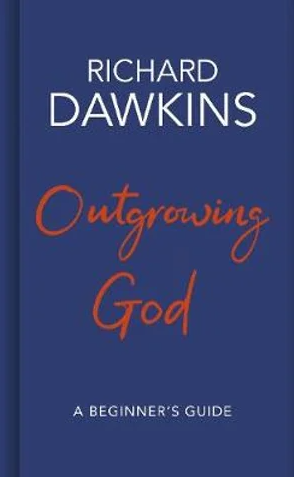Book Review: Outgrowing God: A Beginner's Guide

Richard Dawkins is a controversial figure. I’ve got some mixed opinions on him. On one hand, I suspect that in a hundred year’s time, The God Delusion will be regarded as a seminal piece of writing. On the other hand, I’ve seen how some of my religious friends find him abrasive. Most of the time when I see this though, what I suspect much of the criticism of him comes from, is that people just don’t like having their long term beliefs challenged. (They would also say, at times, ridiculed). That’s not surprising. Other times though, even his supporters think he gets too strident in what he says and how he describes things.
Anyone who has followed my writing, will know that even though I spent the first 42 years of my life growing up as a Christian, I now have absolutely no time for religion. I find it completely unnecessary, often harmful, and I yearn for the day that the world will get past beliefs in gods, demons, ghosts, spirits, etc. And I certainly yearn for the day when professing a belief in such things won’t be required for achieving public office in various countries.
I also grew up in an era where the churches have overseen appalling acts, and then spent their times covering them up rather than helping victims.
I also have no issue with people believing whatever they want. I have friends of pretty much all the popular religious persuasions. Where I have a real issue is when they then want to make laws that govern how we live, based entirely on their belief system. Australia isn’t too bad on this front, but there is still far too much overlap of church and state.
So I was interested to read Dawkin’s new book Outgrowing God: A Beginner’s Guide. I hoped he would create a book that explained why belief in deities, etc. isn’t needed, and is often counter-productive, but in a language that many more would find easier to approach.
This book does cover the basics. It looks at how beliefs have developed over time; it looks at how we know what’s true and what isn’t. It looks at how having a god adds nothing to our knowledge of where the universe came from. It looks at how there’s no need at all for a religion to provide a moral compass for us all.
And I’m sure he’s targeted a mostly US-based audience when describing what we know about evolution. A recent Gallup poll found that 38% of people in the USA still believe that a god created us in our current form, and within the last 10,000 years or so.
Even the catholic pope has long given up on that.
As a book, it touches all the bases, but when reading it, I thought the tone felt a bit flat. It also tended to be repetitive in some areas.
The Verdict ?
This book is ok, and probably best if the target audience was say 15 to 25 year olds, growing up in a society that holds religious beliefs strongly. 6 out of 10.
2021-02-24
